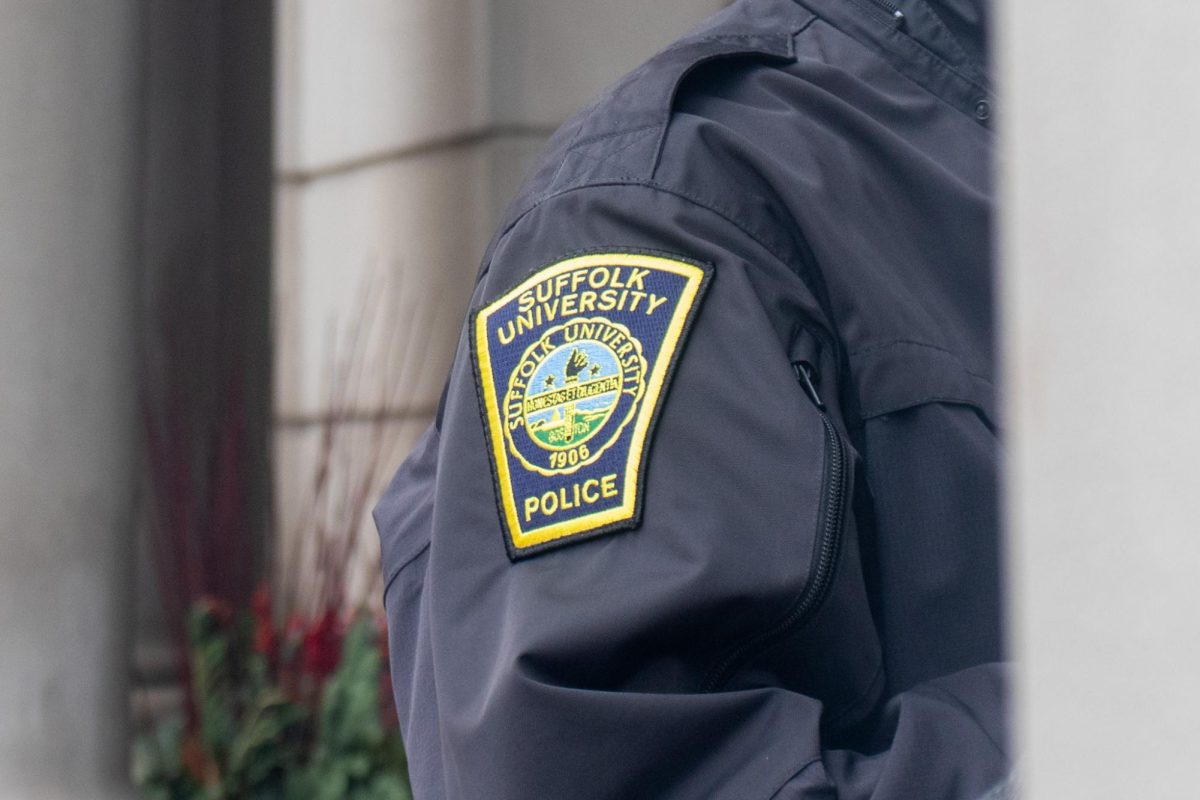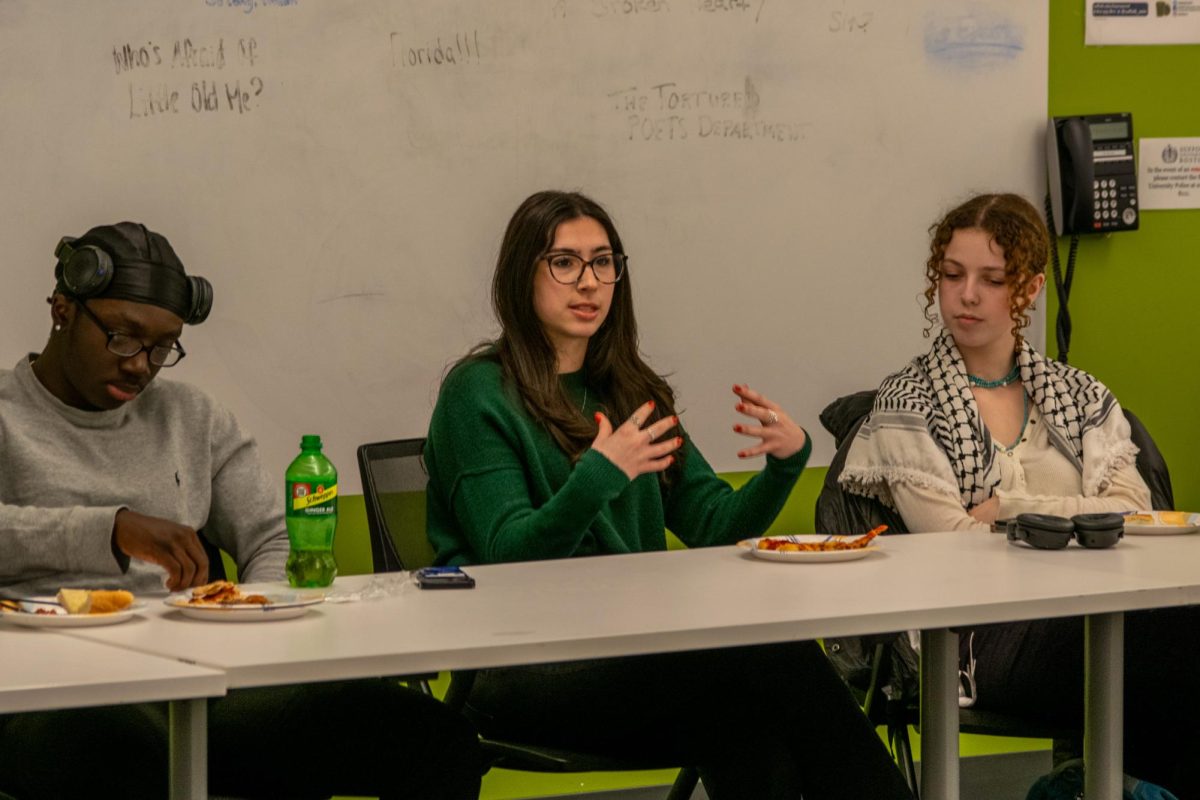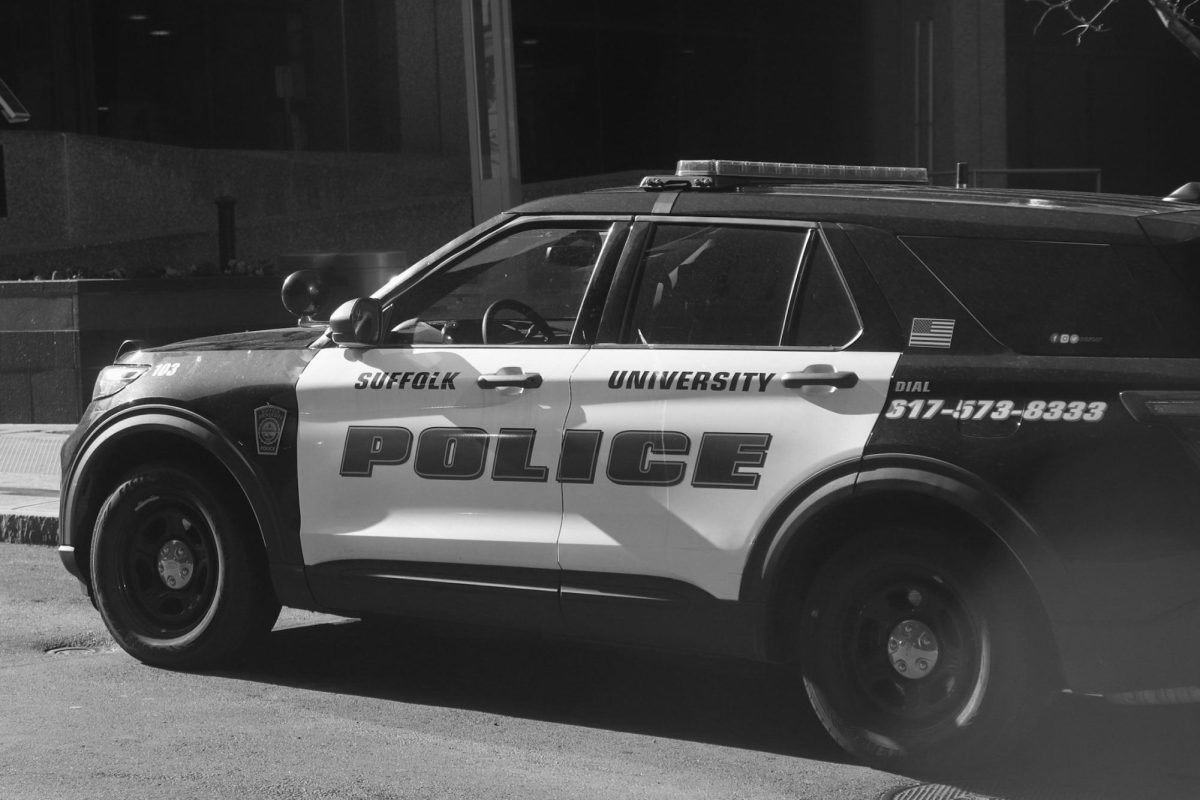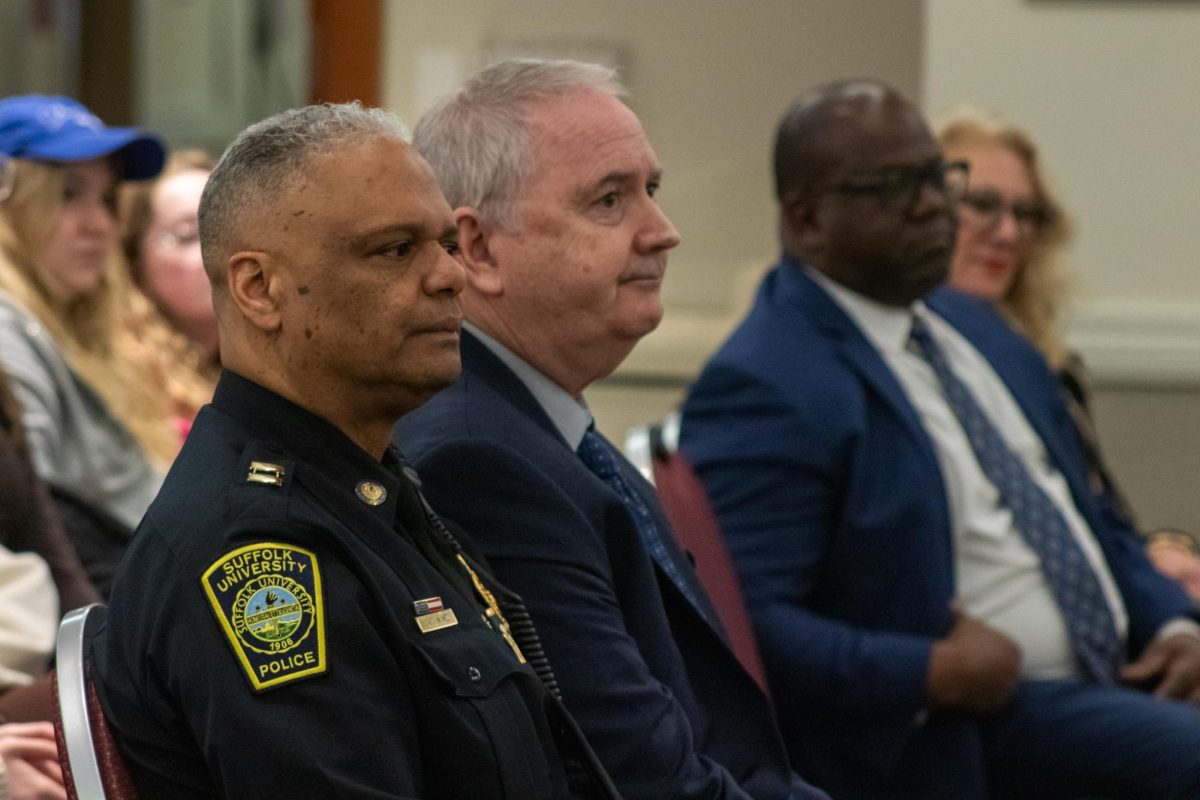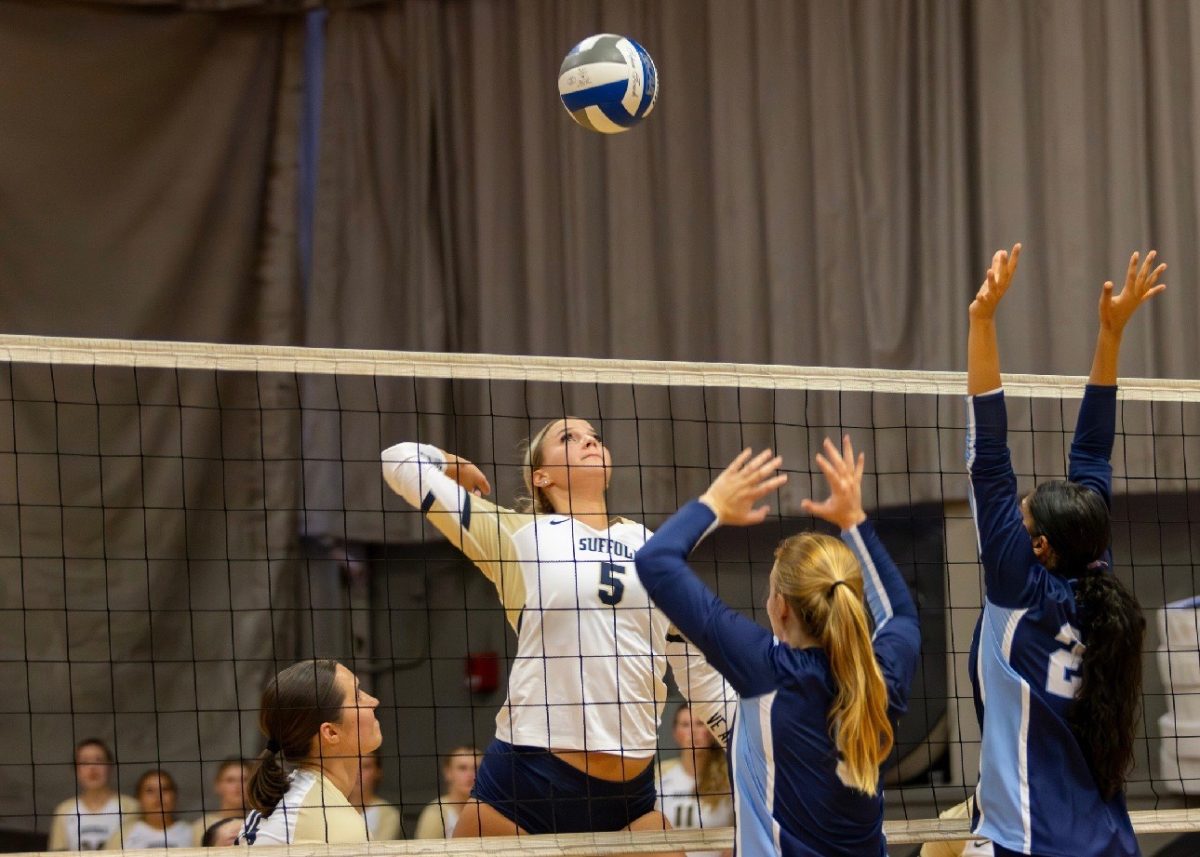Suffolk University administrators, including President Marisa Kelly, announced Sept. 5 what the early stages of arming a portion of Suffolk University Police Department officers will look like, beginning with the formation of a community advisory committee.
An initial email from Kelly outlined three main principles guiding the implementation process based on feedback from the Suffolk community gathered last semester during meetings, forums and surveys; prioritizing mental health support and de-escalation techniques in SUPD responses, restricting armed SUPD officers from entering residence halls “except in cases of life-threatening emergencies” and transparency and accountability.
“As we move forward with the development of an implementation plan, ensuring a comprehensive approach to community safety that supports our values and protects our safety is central to our work this fall,” Kelly wrote. “I am confident that while not everyone will agree with the decision to arm some portion of our campus police, we will be able to develop an implementation plan that makes sense for the Suffolk community and our mission.”
Details of the community advisory committee were laid out in a follow-up email from Boris Lazic, vice president of administration, Laura Ferrari, vice president for student affairs and Rick Oches, provost and senior vice president of academic affairs. Lazic and Ferrari will co-chair the committee.
The committee’s purpose is to develop a comprehensive safety plan that “aligns with the university’s values and community needs.” The committee will not review the decision made by the Board of Trustees in April to arm a portion of SUPD officers, and all recommendations by the committee will be subject to review and approval by Kelly.
The advisory committee will include student representatives from the Student Government Association, Student Bar Association and Graduate Student Association, as well as a Diversity Peer Educator and a Resident Assistant. Faculty representatives from the College of Arts and Sciences, the Sawyer Business School and Suffolk Law School will join the committee alongside university staff and SUPD representatives.
SUPD officers are represented by the American Coalition of Public Safety, a labor union, which means recommendations by the advisory committee will be presented as “conceptual only,” according to the email, as all aspects of the proposal must be bargained with the union and are subject to change.
The committee will be responsible for gathering community input and making recommendations on training, response protocols and a community policing and engagement strategy. It will also develop a “Community Care Model” framework for Suffolk’s campus safety strategy and operations, and make “appropriate modifications to the mission, vision, values and objectives of Suffolk’s public safety operations.”
The principles outlined in Kelly’s initial email were re-emphasized and expanded upon, including a commitment to equity and inclusivity focused on addressing the needs of marginalized communities within Suffolk’s population and examples of co-responder team models to respond to behavioral health crises.
“We understand that this is a sensitive and complex issue, and we are intent on pursuing a careful and thoughtful approach. We aim to establish a campus safety model that prioritizes the well-being of all members of our community while preserving a safe and secure working and learning environment,” the email said.
More information about the opportunities for community involvement and a timeline of the committee’s work will be available “in the coming weeks,” according to the email.



